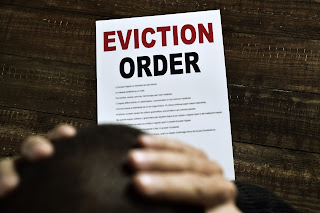The Cost of Eviction

Eviction is a tough process for the one doing the eviction and the one being evicted. During an eviction process, there are expenses that are incurred that include legal fees, court costs, lost rent, and maintenance fees. The costs incurred during an eviction process include; ● Legal Fees: Most times, you will need to hire an attorney to help you evict the tenant. This is so because the eviction process itself tends to be complicated and the paperwork required needs to be accurate. Even a typo can cause delays and other problems. Attorneys charge hundreds of dollars an hour and this could translate to a lot of money It is imperative to note that the more experience a lawyer has, the more the charges. ● Court Costs: All states charge filing fees, even though the costs may vary depending on the court. Tenants often dispute evictions. A disputed eviction that s being represented...

